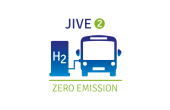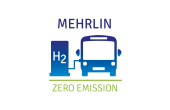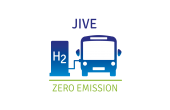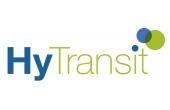Everfuel, Wrightbus, Ballard Power Systems, Hexagon Composites, Nel Hydrogen and Ryse Hydrogen, leading players in the hydrogen fuel cell electric value chain, have joined forces to form the H2Bus Consortium on 3 June 2019. The members are committed to deploying 1,000 hydrogen fuel cell electric buses, along with supporting infrastructure, in European cities at commercially competitive rates.
The first phase of the project, totalling 600 buses, is supported by €40 million from the EU’s Connecting Europe Facility (CEF). The grant will enable the deployment of 200 hydrogen fuel cell electric buses and supporting infrastructure in each of Denmark, Latvia and the UK by 2023.
Fuel cell buses have completed more than 12 million kilometre of service over a 15-year period. In this time, they have achieved an availability in excess of 98%. The market is now ready for the next generation. Wrightbus has worked with its suppliers, namely Ballard Power Solutions and Hexagon, to expand its product offering for a European audience. This will include a 12-meter single-decker, double-decker and articulated fuel cell electric bus. This has been made possible through the scale and experience enabled through previous deployment projects, namely JIVE and JIVE2 projects. The JIVE programmes are a precursor and a necessary step to the commercial deployment of hydrogen fuel cell electric buses. They have had an important catalytic effect in Europe, allowing fuel cell bus manufacturers to scale up their production and start developing volume related offers. By the end of both projects, there will be a total potential deployment of 1,290 hydrogen fuel cell electric buses across Europe.
The consortium will also offer an affordable and reliable supply of green hydrogen straight to the operators’ depot. Nel Hydrogen will supply electrolysers and hydrogen stations while Hexagon will supply hydrogen trailers needed to make the hydrogen value chain complete. Everfuel and Ryse Hydrogen will install and operate the complete hydrogen value chain equipment and offer dispensed hydrogen at bus depots. Ryse Hydrogen is responsible for executing these actions in the UK, while Everfuel will execute them in mainland Europe. Priced at parity with diesel on a per kilometre basis - €5/kg to €7/kg depending on the local conditions and bus fleet size.
The H2Bus maintenance will be organised by Wrightbus to meet the customer’s demands. The maintenance package will be available at 0,30€/km. This program will ensure that a complete stock of spare parts for these buses are held and managed in each country. This will consist of the standard and drivetrain components. Wrightbus will commit to delivering these components to the operators’ depot in a timely manner. This program will also deliver training for staff at the operator’s depot. This will ensure a smooth transition and will allow transit technicians to be qualified to conduct maintenance for these hydrogen buses.
Deployments of Fuel Cell Electric Buses (FCEBs) require scale. For this reason, the H2Bus Consortium’s initial rollout locations are looking to implement a minimum of 200 FCEBs. This will be supported by centralised electrolytic hydrogen production and numerous hydrogen dispensing solutions. Other targeted roll-out locations currently include Norway, Sweden and Germany.






